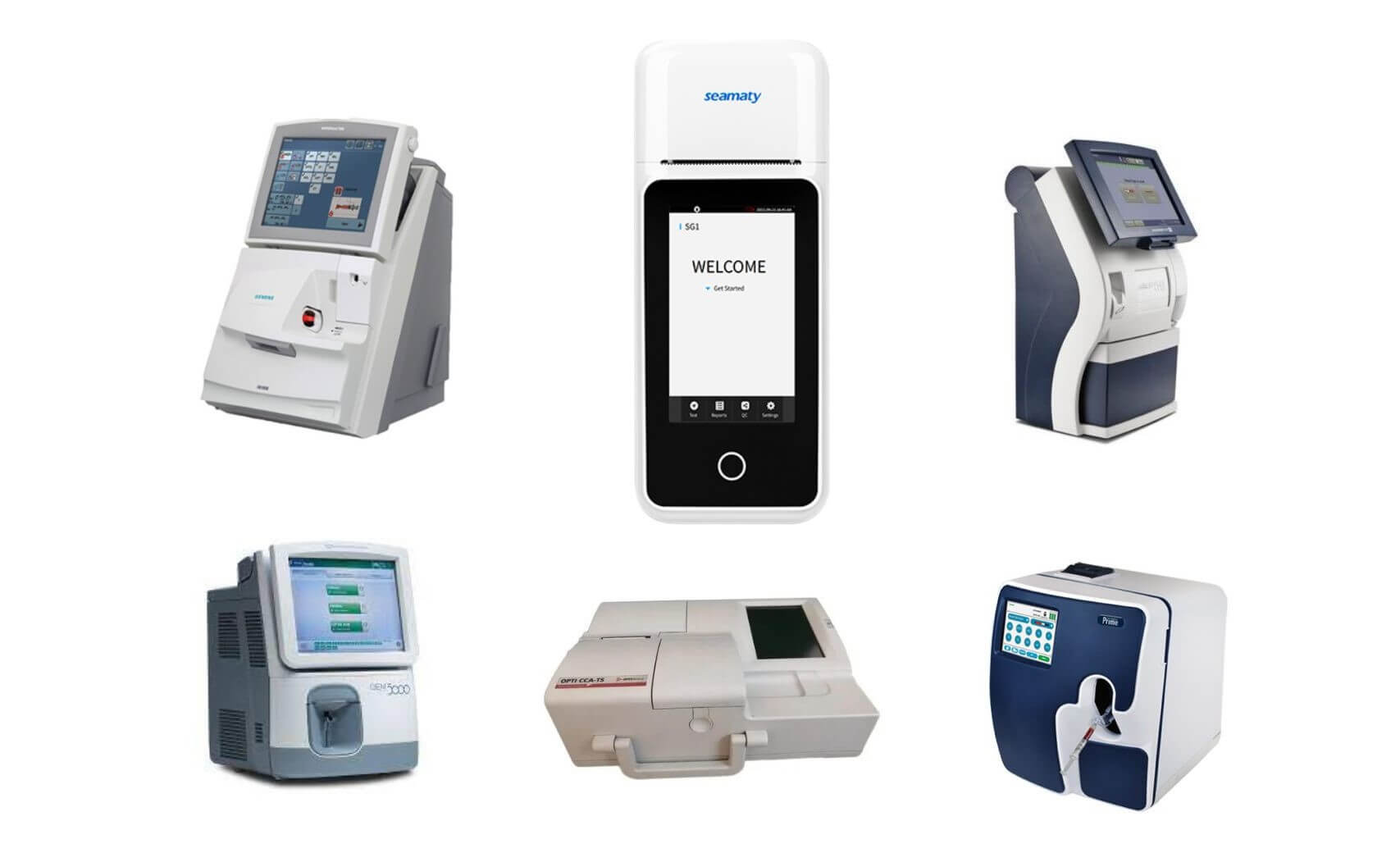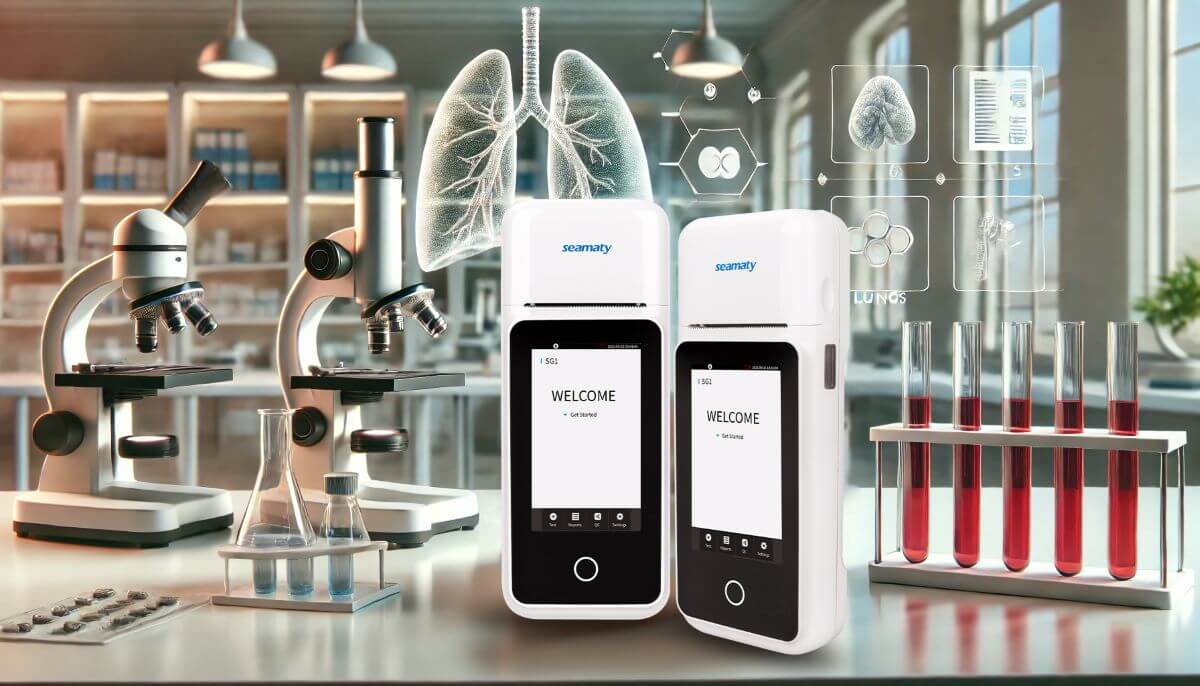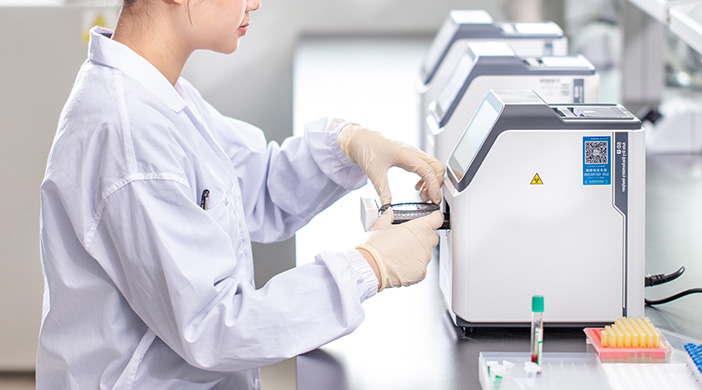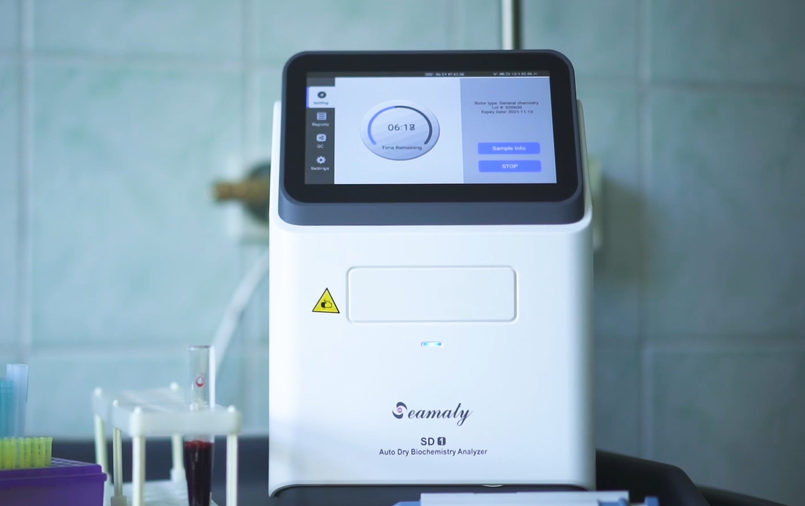In the rapidly advancing landscape of healthcare technology, blood gas analyzers (BGAs) have emerged as essential tools for clinical laboratories, providing real-time insights into a patient's respiratory and metabolic status. As the demand for accurate and efficient diagnostic tools continues to grow, the market has witnessed the development of innovative BGAs tailored to the specific needs of healthcare professionals. This article delves into the key considerations for selecting a blood gas analyzer, explores its clinical applications, and introduces the top six blood gas analyzers for clinical labs, including the groundbreaking Seamaty SG1 portable blood gas analyzer.
How to Choose the Right Blood Gas Analyzer for Your Lab?
When choosing a blood gas analyzer for your clinical lab, several critical factors should guide your decision:
-
Accuracy and Reliability: The foundation of clinical decisions rests on accurate data. A dependable blood gas analyzer should consistently deliver precise results, which can be ensured through advanced calibration processes and robust quality control mechanisms.
-
Testing Speed: Swift patient care is of utmost importance. Opt for an analyzer that provides rapid results without compromising accuracy. Timely turnaround times facilitate prompt clinical interventions.
-
Sample Size: Minimizing sample volume while maintaining measurement precision is crucial, especially for patients with limited blood availability.
-
User-Friendly Interface: A user-friendly design streamlines the testing process and reduces the likelihood of errors. An intuitive interface and straightforward testing steps enhance the efficiency of healthcare professionals.
-
Maintenance and Support: Regular maintenance is essential for consistent performance. Select an analyzer with accessible technical support and an uncomplicated maintenance process.
-
Data Management: Effective data management systems simplify patient records and result tracking. Integration with hospital or laboratory information systems enhances overall efficiency and data accuracy.
-
Cost-Efficiency: While prioritizing quality, consider the analyzer's cost-effectiveness. Striking a balance between performance and cost can benefit healthcare institutions in the long run.
What Are the Clinical Uses of a Blood Gas Analyzer?
-
Respiratory Assessment: BGAs assess parameters such as oxygen and carbon dioxide levels, enabling healthcare providers to evaluate respiratory function and identify conditions like respiratory failure.
-
Acid-Base Balance: These analyzers determine pH and bicarbonate levels, aiding in diagnosing acid-base imbalances such as metabolic acidosis or alkalosis.
-
Electrolyte Monitoring: BGAs measure electrolytes like sodium, potassium, and chloride, crucial for identifying electrolyte imbalances that impact patient care.
-
Lactate Levels: Lactate measurements help assess tissue oxygenation and identify conditions like sepsis or shock.
-
Critical Care Management: In critical care settings, BGAs provide immediate insights for timely interventions, ultimately improving patient outcomes.
Ready to Explore the Top 6 Blood Gas Analyzers for Clinical Labs?
1. Seamaty SG1 Portable Blood Gas Analyzer: Leading the pack of portable analyzers, the Seamaty SG1 integrates microfluidic and microbiosensing technologies. Its compact design allows comprehensive blood gas and electrolyte testing. Dual monitoring and triple calibration ensure precision. With an intuitive three-step testing process, built-in printer, and portability, the SG1 transforms point-of-care testing. It delivers rapid results in just four minutes, requiring only a small sample volume to minimize patient discomfort.
2. Radiometer ABL90 FLEX PLUS: Renowned for high throughput, the Radiometer ABL90 FLEX PLUS offers rapid, reliable results in about 35 seconds. A user-friendly touch screen interface accompanies a broad panel of critical parameters, including blood gases and electrolytes. Its automatic quality control and maintenance features enhance efficiency.
3. Siemens RAPIDPoint 500 Blood Gas System: Blending precision with connectivity, Siemens RAPIDPoint 500 offers an extensive parameter range, from blood gases to glucose and co-oximetry. Advanced technology enables swift sample analysis, and connectivity features facilitate integration with hospital information systems.
4. Nova Biomedical Stat Profile Prime Plus: Excelling in a comprehensive panel of tests, Nova Biomedical Stat Profile Prime Plus covers blood gases, electrolytes, metabolites, and more. Swift results and minimal sample volume requirements enhance usability. An intuitive interface and maintenance alerts make it a favored choice.
5. Instrumentation Laboratory GEM Premier 5000: Engineered for efficiency and reliability, GEM Premier 5000 offers a wide critical care parameter menu. Swift results for blood gases, electrolytes, and co-oximetry aid prompt clinical decisions. Its quality management system ensures consistent accuracy.
6. OPTI CCA-TS Blood Gas Analyzer: The OPTI CCA-TS analyzer offers an extensive test panel, including blood gases, electrolytes, and glucose. An intuitive touchscreen interface simplifies operation, and a maintenance-free cartridge-based system enhances user convenience. Portability and rapid results make it suitable for point-of-care settings.
Conclusion
Blood gas analyzers are invaluable tools that significantly influence patient care and clinical decision-making. When selecting a blood gas analyzer, factors like accuracy, speed, user-friendliness, maintenance, and cost-effectiveness play a pivotal role. With applications spanning respiratory assessment, acid-base balance evaluation, electrolyte monitoring, lactate measurement, and critical care management, these analyzers contribute to more informed medical interventions and improved patient outcomes. Among the top contenders, the Seamaty SG1 Portable Blood Gas Analyzer's innovation and efficiency, combined with the capabilities of the Radiometer ABL90 FLEX PLUS, Siemens RAPIDPoint 500, Nova Biomedical Stat Profile Prime Plus, Instrumentation Laboratory GEM Premier 5000, and OPTI CCA-TS, collectively shape the landscape of modern clinical laboratories.




